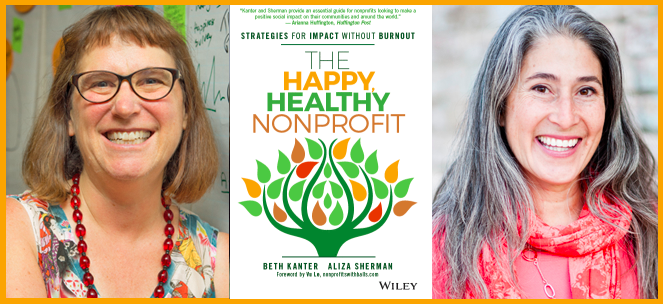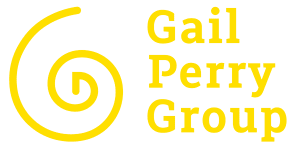 Sooooo – are you working in a happy, healthy nonprofit?
Sooooo – are you working in a happy, healthy nonprofit?
And are you feeling happy and healthy as YOU dedicate your life to changing the world?
Here’s my review of the fabulous book by Beth Kanter and Aliza Sherman, The Happy Healthy Nonprofit: Strategies for Impact Without Burnout.
And I hope this is a must-read on your list.
So let me ask: Is this you?
“Nonprofit leaders, especially those who are involved in social change movements, are celebrated for giving up everything, even their health and well-being, for the cause.”
As a nonprofit leader, you’re probably wildly dedicated to your mission.
Even if you may be neglecting other aspects of your life. (?)
Nonprofits are routinely understaffed, short on resources and support.
No wonder so many of us DO burn out!
The cause itself is so important that you get sucked up into it. You forget the other parts of our life. You forget self-care.
The awesome book will help you. It’s full of “strategies for impact without burnout.”
What a wonderful vision: to achieve the impact we hope for (and more) without sacrificing our health and happiness!
Let’s hear it for Self-Care
Beth and Alicia point out, there are four steps to nonprofit burnout:
1. passion drive,
2. passion waning,
3. passion challenged, and
4. passion depleted.
(I’ve sure been there, have you?)
“Self-care is about revitalization … Self-care gives you the sustainable energy you need to do your mission-driven work.” Simple as that.
So if you’re going to be healthy and if you hope for success, you’re going to have to revitalize. Early and often.
And it’s not just scheduling a spa day now and then. It’s making self care an “overall framework for your life and work.”
From my point of view, I can’t overemphasize how important this is.
My entire personal set of New Year’s Resolutions was focused on self-care. (don’t ask me how it’s going! :)
Every single day I get out of bed, I plan time to make sure I’m happy and healthy.
Create Your Own Happy, Healthy Nonprofit Framework:
Beth and Alicia wonderful tools in this department:
- A burnout assessment tool (I’ll sign up for this one!)
- A chart for measuring reactions to stress,
- Methods for analyzing stress triggers and reactions (Yikes!)
- Self-care assessments and checklists to maintain your focus.
Organizational Culture That’s Both Happy and Healthy
How are you doing on workplace wellness?
Isn’t that the root of it all – your organizational culture?
Is it one that supports health and happiness? Or is it one that engenders unrealistic expectations, self-sacrifice, overwork, overload and . . . . ultimately burnout?
One nonprofit leader quoted in the book notes, “Organizations need to operate from a position of strength.”
Strength means not just squeaking by.
Not frantically scrambling to meet unreasonable expectations. Not being chronically exhausted.
The WE-Care Workplace: Organizational Well-Being
I love this idea. Organizational well-being becomes a goal by itself.
Why? It’s a no-brainer.
Because it boosts productivity and morale.
It’s not difficult to create activities and events within your organization that focus on well-being. How about nutrition and exercise programs?
- How about making changes to the physical office itself like lovely design, ergonomic desks, flex space, more natural light, or adding dry erase walls for brainstorming?
- How about fostering kind and considerate human interaction through team games, field trips, communal meals, story-sharing?
- How about mindfulness programs at work? Or relaxation activities? Or creativity activities?
- Have you tried walking meetings? Flexible hours or work weeks? Or a Results-Only work environment?
- How about enforcing vacation time? Or “real vacations” that are completely cut off from work? Or sabbaticals?
- How about eliminating email contact in the evenings or on weekends? (digital detox!)
There’s even a section called “Play at Work” – sign me up now!
I love, love all these ideas. This is what you call a “people-first” culture.
This will support not only work-life balance, but work-life harmony.
This is how you SUSTAIN your people so that they have the energy and passion to change the world.
BOTTOM LINE: Creating a Happy, Healthy Nonprofit
Beth and Alicia deserve a group hug for this encouraging and practical guide.
Let’s dedicate ourselves to both personal and workplace well-being. We’ll feel better and achieve more. Not to mention we’ll be happier! :)
What do you think?
How’s YOUR workplace in relation to well-being?
How can YOU improve your organization’s health and happiness?
